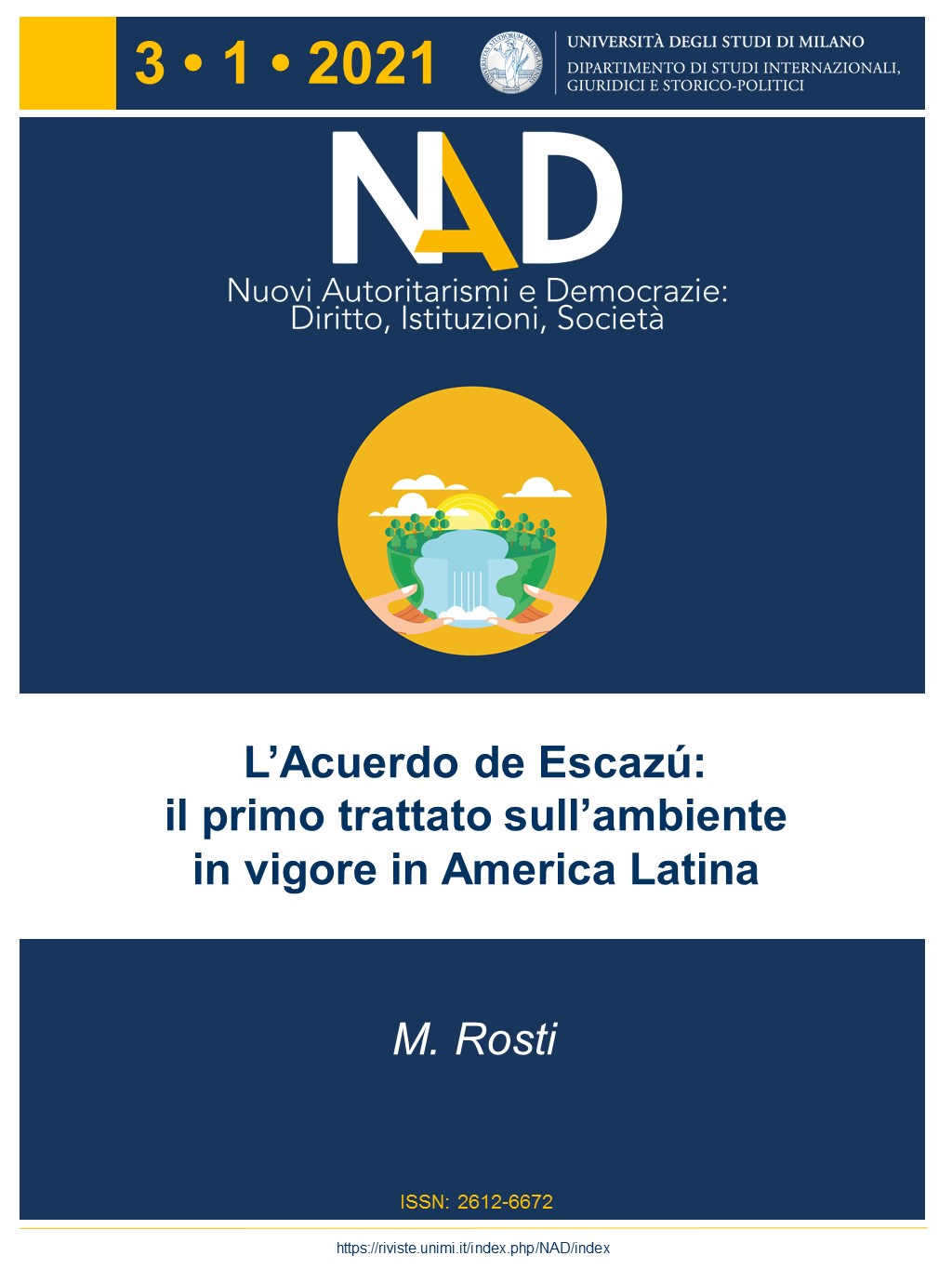L’Acuerdo de Escazú: il primo trattato sull’ambiente in vigore in America Latina
DOI:
https://doi.org/10.13130/2612-6672/15831Keywords:
Acuerdo Escazú, Latin America, environment, environmentalism, indigenous peoples, extractivismAbstract
The Escazú Agreement, the first environmental treaty to order that signatory States render available all information on the projects which may have an environmental impact, guarantee that citizens participate in decisional processes and adopt measures to protect defenders of indigenous environments and peoples, entered into force on 22 April 2021. Building on these premises, the paper reports some data with the aim of briefly tracing the framework in which environmental activists work. These, together with indigenous peoples, oppose the extractivist development model adopted by the region’s government in the last twenty years, which has had – and still has – a significant impact on the environment, has increased social conflicts, and triggered a violence spiral against environmentalists and some indigenous communities, thus transforming Latin America into the most dangerous place for those who protect the environment

Downloads
Published
How to Cite
Issue
Section
License
Copyright (c) 2021 Marzia Anna Linda Maria Rosti

This work is licensed under a Creative Commons Attribution-NonCommercial-NoDerivatives 4.0 International License.









